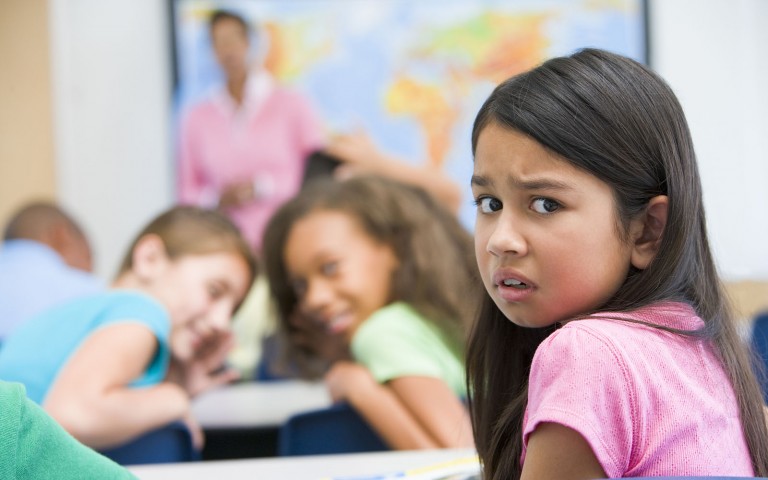
Photo: Monkey Business Images | Dreamstime.com
While the psychological effects on children of mistreatment by adults have been fairly well researched and documented, it has taken a while for peer bullying to get the same attention. Studies in the past 20 years have shown that bullying has a strong negative effect on children’s self-esteem and mental well-being that can take years to overcome. A study presented in April 2015 suggests that peer bullying can have comparable or worse long-term psychological effects on children than even mistreatment by adults.
The study, which was presented at the Pediatric Academic Societies (PAS) annual meeting in San Diego, and is to be published in The Lancet Psychiatry, was undertaken to look into how bullying has an impact on mental health. The researchers looked at children and young adults in the US and the UK who during their childhood had either been mistreated by adults, bullied by peers, or both. They looked at reports of mistreatment between the ages of 8 weeks to 8.6 years, while reports of bullying were recorded at 8, 10 and 13 years. Mental health outcomes (anxiety, depression, self-harm/suicidality, overall mental health problems) were recorded at age 18.
The results showed that children and adolescents faced more ill-treatment from their peers than from parents or other adults. For example, in the UK group, 8.5% experienced only mistreatment by adults, 29.7% experienced only bullying and 7% experienced both mistreatment and bullying. In the US group, mistreatment by adults only was higher at 15%, while bullying only was 16.3%, and 9.8% were both mistreated and bullied. The researchers observed that children who were mistreated by adults were also more prone to being bullied by peers than those who were not ill-treated.
After confounders such as family adversity, prenatal maternal mental health problems and socioeconomic status were taken to account and the results were adjusted, researchers found that mistreatment from adults alone did not increase the risk of mental health problems among youths in the US group but did increase the risk of depression in the UK group.
What did show up clearly in both study samples was that the youth who experienced bullying had greater chances of suffering from a mental health problem than the youth who had been ill-treated only. These mental health issues included anxiety, depression and self-harm and suicidal tendencies. Those children who had been both maltreated and bullied were also more prone to these mental health problems.
“Being bullied is not a harmless rite of passage or an inevitable part of growing up; it has serious long-term consequences. It is important for schools, health services and other agencies to work together to reduce bullying and the adverse effects related to it,” said study author Dieter Wolke, PhD and professor of developmental psychology and individual differences in the UK.
One potential issue with the study is that it only looked at reports of mistreatment by adults while the children were under 9 years of age. What it doesn’t tell us is whether abuse later in life has a stronger effect on children’s mental health. As the results are not yet published, it is also not clear whether the level of abuse was taken into account.
In India the subject of bullying needs more research. The Indian Express reported in April 2014 that the Central Board of Secondary Education (CBSE) had sought feedback on bullying from school officials and students via an online survey. However, as of April 2015, there is no published information about this survey or its findings on the CBSE’s web site.
Here is FamiLife’s guide for parents on bullying.
Share your thoughts, leave a comment below. Please like FamiLife’s page on Facebook so that you get all our articles and others may find us.
